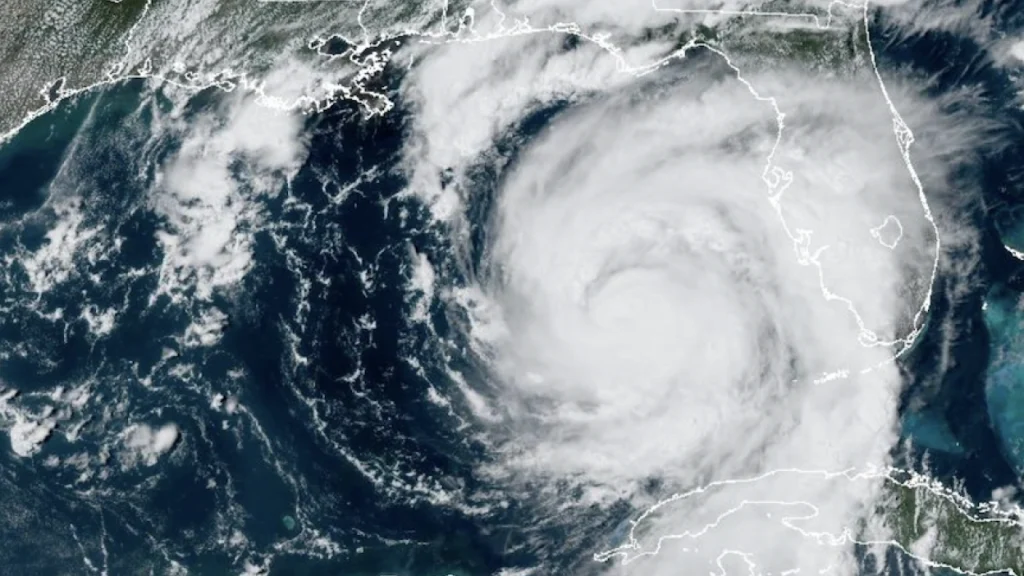Idalia projected to hit Florida as Category 4 hurricane with ‘catastrophic’ storm surge

Cedar Key, The Gulf Observer: Florida residents living in vulnerable coastal areas were ordered to pack up and leave as Hurricane Idalia gained steam in the warm waters of the Gulf of Mexico, and authorities warned of a “catastrophic storm surge and destructive winds” when the storm moves ashore Wednesday morning.
Idalia was packing sustained winds of 110 mph (177 kph) early Wednesday, after growing into a Category 2 system on Tuesday afternoon. It was projected to make landfall later Wednesday morning as a Category 4 storm with winds of at least 130 mph (209 kph) in the lightly populated Big Bend region, where the Florida Panhandle curves into the peninsula. The result could be a big blow to a state still dealing with lingering damage from last year’s Hurricane Ian.
The National Weather Service in Tallahassee called Idalia “an unprecedented event” since no major hurricanes on record have ever passed through the bay abutting the Big Bend.
On the island of Cedar Key, Commissioner Sue Colson joined other city officials in packing up documents and electronics at City Hall on Tuesday. She had a message for the almost 900 residents who were under mandatory orders to evacuate. More than a dozen state troopers went door to door warning residents that storm surge could rise as high as 15 feet (4.5 meters).
“One word: Leave,” Colson said. “It’s not something to discuss.”
Gov. Ron DeSantis repeated the warning at Tuesday afternoon news conference.
“You really gotta go now. Now is the time,” he said. Earlier, the governor stressed that residents didn’t necessarily need to leave the state, but should “get to higher ground in a safe structure.”
After landing in the Big Bend region, Idalia is forecast to cross the Florida peninsula and then drench southern Georgia and the Carolinas on Thursday. Both Georgia Gov. Brian Kemp and South Carolina Gov. Henry McMaster announced states of emergency, freeing up state resources and personnel, including hundreds of National Guard troops.
“We’ll be prepared to the best of our abilities,” said Russell Guess, who was topping off the gas tank on his truck in Valdosta, Georgia. His co-workers at Cunningham Tree Service were doing the same. “There will be trees on people’s house, trees across power lines.”
At 1 a.m. EDT Tuesday, Idalia was about 115 miles (185 kilometers) southwest of Cedar Key and 160 miles (257 kilometers) south of Tallahassee, the National Hurricane Center said. It was moving north at 16 mph (26 kph).
Idalia pummeled Cuba with heavy rains on Monday and Tuesday, leaving the tobacco-growing province of Pinar del Rio underwater and many of its residents without power.
“The priority is to reestablish power and communications and keep an eye on the agriculture: Harvest whatever can be harvested and prepare for more rainfall,” President Miguel Díaz-Canel said in a meeting with government officials Tuesday.
State media did not report any deaths or major damage.
With a large stretch of Florida’s western coast at risk for storm surges and floods, evacuation notices were issued in 22 counties, with mandatory orders for some people in eight of those counties.
Many school districts along the Gulf Coast were to be closed through at least Wednesday. Several colleges and universities also closed, including the University of Florida in Gainesville. Florida State University in Tallahassee said its campus would be closed through Friday.
Two of the region’s largest airports stopped commercial operations, and MacDill Air Force Base on Tampa Bay sent several aircraft to safer locations.
Asked about the hurricane Tuesday, President Joe Biden said he had spoken to DeSantis and “provided him with everything that he possibly needs.”
Ian was responsible last year for almost 150 deaths. The Category 5 hurricane damaged 52,000 structures, nearly 20,000 of which were destroyed or severely damaged.
The National Oceanic and Atmospheric Administration recently said the 2023 hurricane season would be far busier than initially forecast, partly because of extremely warm ocean temperatures. The season runs through Nov. 30, with August and September typically the peak.


